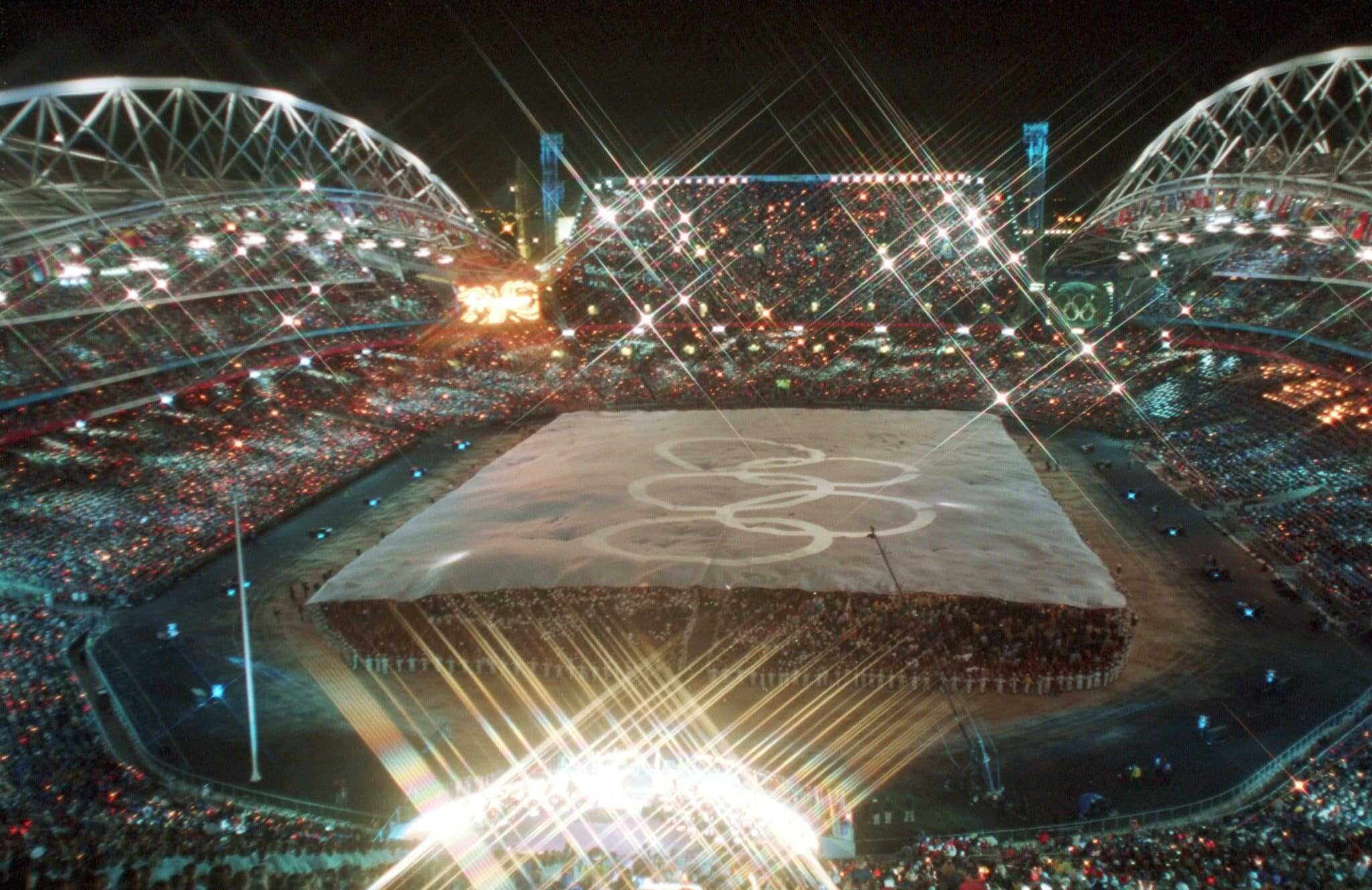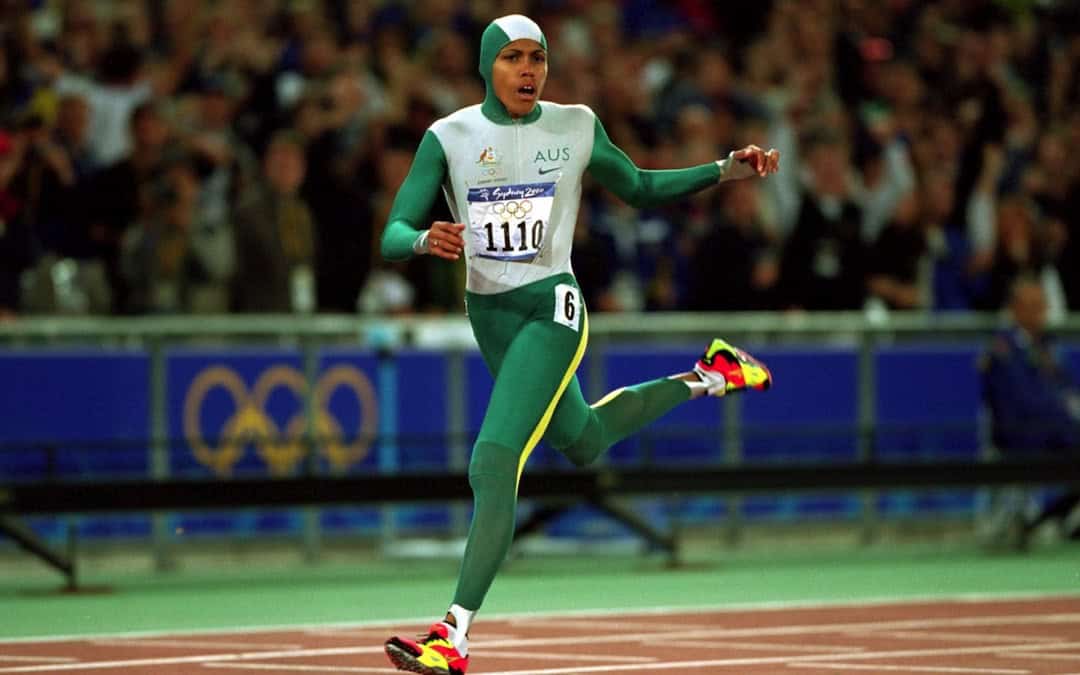You may have noticed some talk about the twenty-fifth anniversary of the Sydney Olympics this past week or so. The Opening Ceremony of Sydney 2000 was 15 September but the focus of as much, if not more, of the commentary has been a more significant landmark which occurred 10 days later – Cathy Freeman’s gold medal in the 400 metres.
Far more than an athletic triumph, Freeman’s victory was seen as highly symbolic. It came almost four months to the day after the huge ‘Sorry March’ across Sydney Harbour Bridge as part of National Reconciliation Week and there was a sense of optimism around that Australia would finally come to terms with the dispossession of the indigenous inhabitants by European settlement.
That didn’t go so well. The conservative government of John Howard was intransigent. It would be almost eight more years before Labor prime minister Kevin Rudd delivered a national apology and the Voice to Parliament referendum was lost in 2023. The celebration of Freeman’s win by all – almost all – Australians proved to be a moment rather than a sea change.
Still, what a moment it was, the zenith in a night of high points. If you want to read more about it, just plug ‘Magic Monday, Sydney 2000 Olympics’, or something like it, into your search engines. In the five Olympic Games I covered as a journalist (and four others before and since) I can’t recall a better night of athletics.

My Magic Monday assignment was to file 500 words on the 400 as soon as possible after Freeman had crossed the line (strangely, I had no doubt she would win). Like any good reporter given such a task, I had almost that many words pre-written just in case all I could think of in the moment was “Cathy Freeman last night won the Olympic 400 metres.”
Luckily, I didn’t freeze, though I did retain some of the words – how she progressed to the final, for example – where they seemed relevant. Basically the 500 words came smoothly and quickly. I was proud of my effort, though not as proud as I was about Freeman’s.
It had been very much a year of following Cathy Freeman. Although the Australian athletics journos spent much of their time telling sceptical editors and overseas colleagues that there was more to our athletics team than Freeman, deep down we, too, realised that she was the best, perhaps only, chance at a gold medal in the main stadium.
There was also the notion, not without at least some superficial evidence, that her campaign was falling apart as she went through her acrimonious split with former manager and partner Nic Bideau. The impression was at its strongest when she opened the European leg of her preparation in shambolic fashion.

The French nixed her plans to set up a base in France. When a switch to Bath in England was hastily organised a training partner sourced from Los Angeles took one look at the west England city and suddenly remembered he had much to do at home. A trip to her first race in Italy over 400 saw a traffic snarl on the M25, a missed flight followed by a last-minute arrival further delayed by a fierce storm. Overlooked amongst all this was the fact that she won regardless, then followed up with wins over 200 in Paris and 400 in Athens.
When I look back now, my own situation in 2000 reminds me of comments made by former prime minister Malcolm Turnbull about his personal wealth.
“The fact is that Lucy and I have been very fortunate in our lives,” Turnbull said. “. . . I don’t believe that my wealth, or frankly most people’s wealth, is entirely a function of hard work.”
My wealth when it came to Freeman was the depth of contacts I had developed. Chris Wardlaw was head coach of the Australian Olympic team. I had run with him for 20 years. I knew her coach, Peter Fortune, from the time he was an interclub sprinter for the Brighton club in Melbourne. Now they were vital parts of the campaign.
At times this meant that I knew too much. Many conversations began with the phrase: “now you can’t write this . . . ”. One such was between Wardlaw and Fortune just before she left for the US and Europe. An 11-point plan was drawn up on a page torn from my notebook. Sadly, it was lost some time between then and 25 September.
The Fairfax media covered Freeman all the way through to the gold medal. I went to Europe for the first stint, my colleague Louise Evans for the second. I came back feeling remarkably calm about Freeman’s prospects, a calm which never left me.
At Games time we landed in Sydney with the athletics team from its final training camp in Brisbane. My first assignment was a futile search for defending 400 champion Marie-Jose Perec who eventually left Sydney on the eve of the Olympics without running a step. The focus on Freeman became even more intense.
At the end of a day which involved tracking her through an arrival ceremony for the Australian team and a training session on the Olympic warm-up track, I found myself waiting to meet my wife, a team physio, at the back gate of the Village. A car emerged and I found myself looking through a car window at none other than Freeman: “My god,” I thought, “she must think I’m stalking her.”
A few days later, Cathy Freeman was an Olympic champion. Her immediate reaction was to sit down on the side of the track overcome with – well, relief mostly.

In a column titled “Triumph in a crumpled heap”, written to mark an earlier anniversary of her win, I quoted a reply Freeman delivered to Ray Martin about lighting the Olympic flame. Asked whether a jammed lift and subsequent drenching had annoyed her, she replied:
“No. I told myself: I’ve come here to win a gold medal in the 400 metres, not to light the Olympic cauldron.”
And win it she did, even if her first reaction was, understandably, to sit down on the track in a heap. She had coped with the pressure without missing a beat. It was its release which left her, for a few moments, unable to stand.
But in front of 112,000 spectators, Freeman had delivered. It was, and remains, the biggest moment of Sydney 2000.
